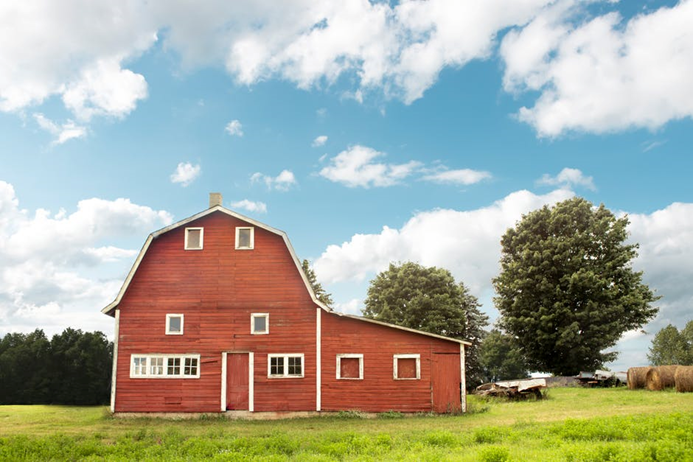Did you know that there are more than 2.01 million American farms?
Starting your own farming business can be a very rewarding experience, but it’s important to do your research first. There is a lot of information out there about starting a farming business, but it can be hard to know where to start.
But don’t worry. Keep reading because we have put together this new farmer guide to help you start a farming business. In it, you will find information on the different types of farming businesses, how to choose the right one for you, what you need to know about financing and insurance, and more.
The Cost of Starting a Farming Business Can Be Prohibitive
The cost of starting a farming business can be prohibitive. You’ll need to factor in the cost of land, equipment, and seeds. You may also need to hire help, which can add to your expenses. However, there are ways to minimize these costs. One option is to start small, with just a few acres of land and a modest amount of equipment.
Another option is to focus on niche crops that require less investment to get started. Whatever approach you take, carefully planning and research can help you keep costs down and give your farming business the best chance for success.
There Is a Lot of Hard Work Involved in Running a Farm
Anyone who has ever had a garden knows that growing plants is not as easy as it looks. It takes time, effort, and patience to produce a healthy crop. The same is true on a larger scale for farmers. Agriculturists must contend with unpredictable weather patterns, pests, and soil conditions in order to bring food to our tables.
In addition, they must be able to efficiently operate machinery and manage finances. While the work is certainly rewarding, it is also physically and mentally demanding for farmers. So the next time you sit down to enjoy a meal, remember the hardworking farmers who made it possible.
You Need to Know What You’re Doing
Farming is a complex and challenging business. There is a lot to learn, and you will need to have some knowledge of agriculture before you start your business. This includes understanding the needs of plants and animals, the different types of soil and how to care for them, and the science of irrigation.
You will also need to be familiar with the equipment used in farming and the regulations that govern the industry. While it may seem like a lot to handle at first, remember that thousands of people have successfully started their own farming businesses. With hard work and determination, you can make your dream of becoming a farmer a reality.
The Market for Farm Products Can Be Volatile
The market for farm products can be volatile. Prices for crops and livestock can fluctuate wildly, so you’ll need to be prepared for lean times as well as good years. In a bad year, you may have to sell off some of your animals or take out a loan to make ends meet. In a good year, you may be able to pay off your debts and invest in improvements to your farm.
Either way, it’s important to stay focused on your long-term goals and not get too discouraged by the ups and downs of the market.
Weather Can Be a Major Factor in Farming
Weather can be a major factor in farming. Drought, floods, and other extreme weather conditions can ruin crops and devastate a farm. Farmers have to be constantly alert to changes in the weather and take action to protect their crops. Drought can cause plants to wilt and die, and it can also lead to dust storms that damage equipment and buildings.
Floods can destroy crops and wash away topsoil, making it difficult for new plants to grow. Extreme heat can cause livestock to suffer from heat stress, and severe cold can kill plants outright. As a result, farmers must always be prepared for whatever the weather may bring.
You Need to Be Prepared for the Long-Term
Farming is a long-term proposition. It can take years to see a return on your investment, so you’ll need to be patient and have deep pockets. This is not a get-rich-quick scheme; it’s a lifestyle choice that requires dedication and hard work. But if you’re prepared to put in the effort, farming can be a rewarding and fulfilling way to make a living.
There are many different types of farms, so you’ll need to do your research to find the one that’s right for you. Consider your climate, soil type, and water availability when making your decision. Once you’ve found the perfect spot, you can start planning and planting your crops. With time, patience, and a lot of hard work, you can turn your farm into a thriving business.
There Is Risk Involved in Farming
Farming is a risky business. Every year, farmers face the possibility of crop failure due to pests, disease, or bad weather. While there are some risks that farmers can insure against, such as fire or flooding, other risks, like drought, are difficult to protect against. As a result, farmers must be prepared for the possibility of failure.
They need to have enough savings to cover a bad year, and they need to be able to diversify their income sources in case one of their crops fails. However, even with all of these precautions, there is always the risk that something will go wrong.
That’s why farming is such a challenging and rewarding occupation. You never know what’s going to happen, but you have the satisfaction of knowing that you’ve given it your best shot.
Ready to Start a Farming Business?
If you’re thinking of starting a farming business, it’s important to do your research first. There are many things to consider, from the cost of land and equipment to the amount of time you’ll need to invest in order to be successful.
Check out our blog for more articles like this one on USDA, and what type of farm equipment you’ll need.










